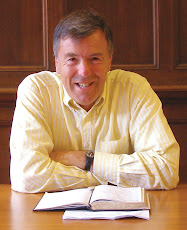Monday, 3 September 2012
Bias in the Scottish Parliament's Time for Reflection
TIME FOR A RETHINK?
Time for Reflection (TFR), the contemplative session that kicks off the Scottish Parliament’s weekly business, is biased towards some religious faiths and under-represents other faiths and the large non-religious elements of the Scottish population.
Agreed after the first debate in the Parliament in 1999, Time for Reflection was planned to reflect the pattern of belief in Scotland. But research by Norman Bonney, emeritus professor at Edinburgh Napier University, has demonstrated that the pattern of contributions require adjustment to more closely representative of Scottish religious and moral beliefs.
Comparing contributions to TFR with what is known about Scottish religious beliefs and behaviour during the 12 years from 1999 to 2011 Professor Bonney notes a consistent pattern of over-representation of Christianity in general, the Roman Catholic Church and non-Christian religions.
Such is the diversity of religion and belief in Scotland he reports that the roughly annual inclusion of relatively small non-Christian faiths such as Islam, Buddhism and Judaism in the proceedings narrows the opportunity to represent the great diversity of Christianity in the country.
Christian Evangelical and Pentecostal churches seem to be particularly excluded. The churches of the Assemblies of God, which is the fourth largest provider of religious weddings in Scotland, have made no appearances and only four ‘pastors’, found in such denominations, officiated during the twelve year period.
The focus of TFR on religious faiths also leads to the considerable under-representation of the non-religious sectors of the community, which can be estimated at about one third of the population. The Humanist Society of Scotland, whose members do not believe in gods or afterlife, made only two appearances in the 12 year period – less frequently than the smaller membership Bahai, Jewish, Hindu, Sikh and Buddhist faiths in Scotland.
Need for review
Professor Bonney commented that if Time for Reflection is to continue in its present form it needs to be reviewed by the Scottish Parliament so that contributions to it are more in accord with the patterns of belief in Scotland as was intended in the initial parliamentary debates and decisions in 1999. 2001 Census findings due to be released early next year and other social survey evidence could well assist in this task.
Sources
This research was reported by Professor Bonney as a paper entitled ‘ Time for Reflection in the Scottish Parliament: A new UK state religion?’ and delivered at the conference on New Forms of Public Religion at the University of Cambridge, 4.15pm on Wednesday 5 September 2012.
The full text of the research is published online at advance access of the website of the journal Parliamentary Affairs on 11 April 2012;
http://pa.oxfordjournals.org/content/early/recent
